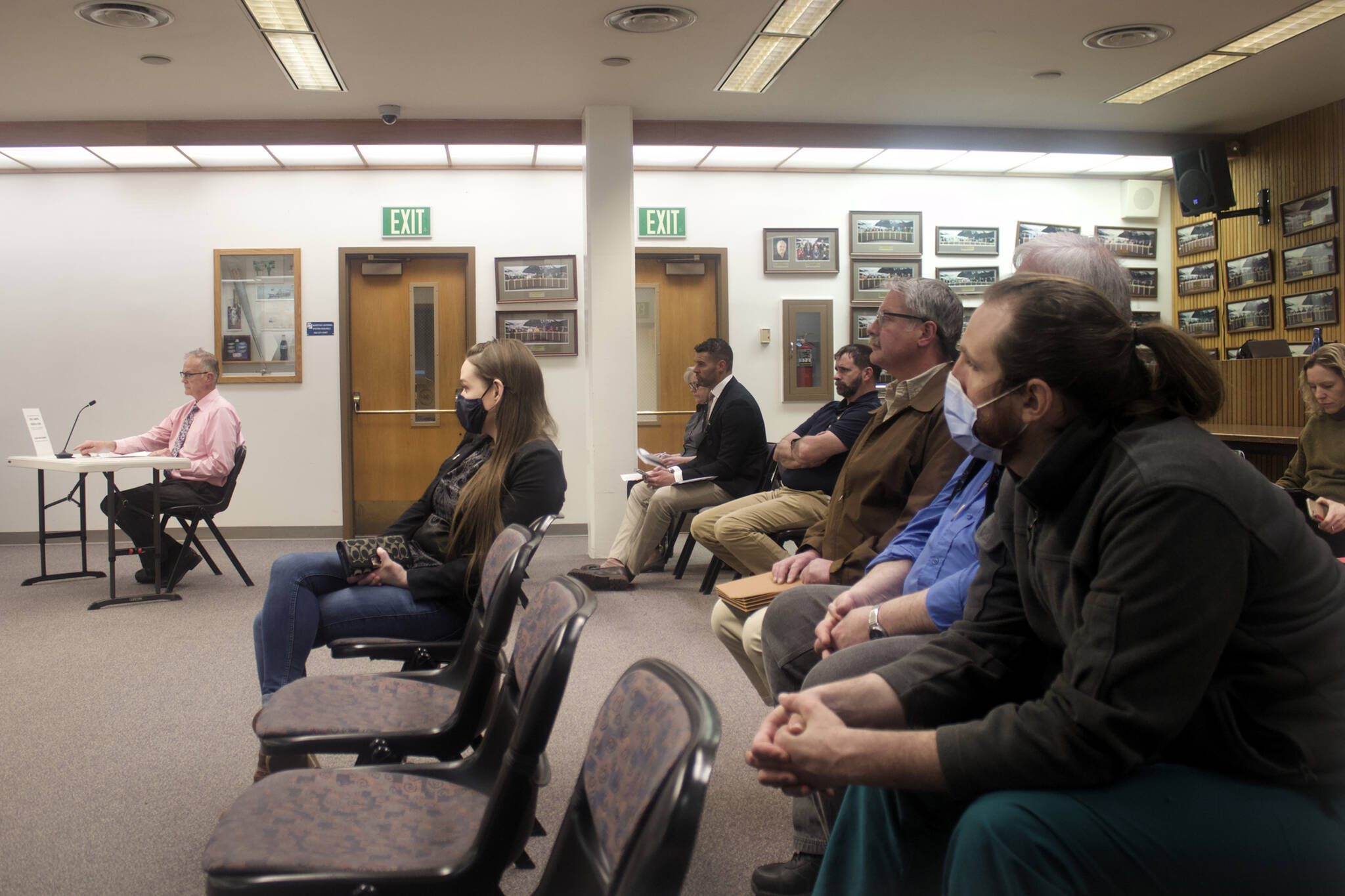Putting together next year’s city budget doesn’t have to be as complex as the bureaucrats and politicians are making it seem. All you have to do is cut street construction/maintenance by 40% or increase the 5% sales tax by 0.4%.
And the “you” in that means, yes, you can make that a reality — virtual reality, at least — using the city’s first online budget simulator, which allows the public to easily adjust spending and revenue as mindfully or mindlessly as desired. The simulator went live on the city’s website two weeks ago and is a tool for people to ponder possibilities before a City and Borough of Juneau Assembly meeting at 7 p.m. Monday devoted to public testimony about the proposed fiscal budget, which must be finalized and approved next month.
But it’s not a free-for-all, so to speak. As in you can’t just zero out the entire “administration” category and use the savings to cut your property taxes by 30% (or eliminate property taxes altogether by wiping out the schools, police and fire department budgets).
Guardrails ensure funding for most categories meets legally required minimums — although it appears there’s no limits on tax hikes. So setting the mill rate for general government services at zero and replacing the revenue with a 600% hotel bed tax works out fine, mathematically speaking.
Just don’t expect the actual budget balancers to take you seriously.
How the simulated budgets will be used in context of the real budgets isn’t yet known, Jeff Rogers, the city’s finance director, said in an email. The simulated budgets are automatically compiled into a survey-type report, which might produce results shared with CBJ Assembly members during a public meeting.
“If we receive enough results to make them meaningful in the aggregate, we will definitely share them with the Assembly Finance Committee,” he wrote. “However, the results will have their limitations. It’s not a statistically significant or accurate survey because respondents are self-selecting into participation, which will skew the result. Additionally, some responses will be more considered than others. Within the boundaries of the tool, there’s nothing that prevents someone from responding with an un-serious submission (like doubling taxes or slashing a critical service, for example).”
About 50 user-created budgets had been submitted as of Monday, Rogers wrote.
Last year, the city provided an online budget tool allowing the public to see how their tax dollars were used for various expenses, paying $4,000 to the Denver-based company Engaged Public for a one-year contract. The tool has an option to turn on budget simulating at no additional cost, which local finance officials chose to implement this year.
This year’s simulator puts users in the same starting position as the CBJ Assembly, with a $3.4 million deficit that adjusts as the plus/minus icons for each revenue/spending category are clicked. Pop-up information windows are available for each line item, so those wondering what the police department gets for the $608,000 proposed for community service programs can learn the following:
“The Community Services Unit (CSU) is responsible for addressing police-related issues that do not require police officers. The CSU handles calls related to parking, abandoned vehicles, garbage enforcement, urban bear attractants, commercial passenger vehicle administration and enforcement, child car seat inspections, woodsmoke enforcement, special event permits, trafic [sic] control, and assisting officers as needed.”
In addition to submitting final spending plans to the city, user-created budgets can be saved in progress and edited by the original user or others via a uniquely created link.
Monday’s public testimony meeting coincides with the first day of this year’s cruise ship season, which was largely the focus of a meeting of the Assembly’s Finance Committee on Wednesday evening, the third in a weekly series reviewing various aspects of the proposed $408 million spending plan.
Presentations for docks and harbors, passenger fee plan, hotel bed tax and Travel Juneau focused on struggles during the past two years of the COVID-19 pandemic, and how a return to near normalcy during the coming year may help make up for deficits while allowing for specific personnel and facilities improvements.
Docks and harbors, for example, is projecting $2.28 million in spending and $2.48 million in revenue during the coming fiscal year, a significant increase from $1.6 million in spending and $1.57 million in revenue for the current year. But for those at home tempted to save a bit on taxes by trimming next year’s surplus using the simulator, Juneau Port Director Carl Uchytil noted those funds are being used in part to make up for deficits in the department’s fund balance the past two years.
“Covid was hard on our enterprises,” he told the finance committee. “We will be drawing about $800,000 out from the docks fund balances due to revenue losses.”
Furthermore, the department has been balancing its budget through austerity measures such as leaving staff positions unfilled, Uchytil said.
While those making presentations related to tourism-oriented budget items generally expressed optimism about the coming year, there also remains an immense amount of uncertainty.
“We budgeted for a million passengers this year,” Tourism Manager Alexandra Pierce told the committee. “That may be low. That may be right on. We don’t know.”
• Contact reporter Mark Sabbatini at Mark.Sabbatini@juneauempire.com.

